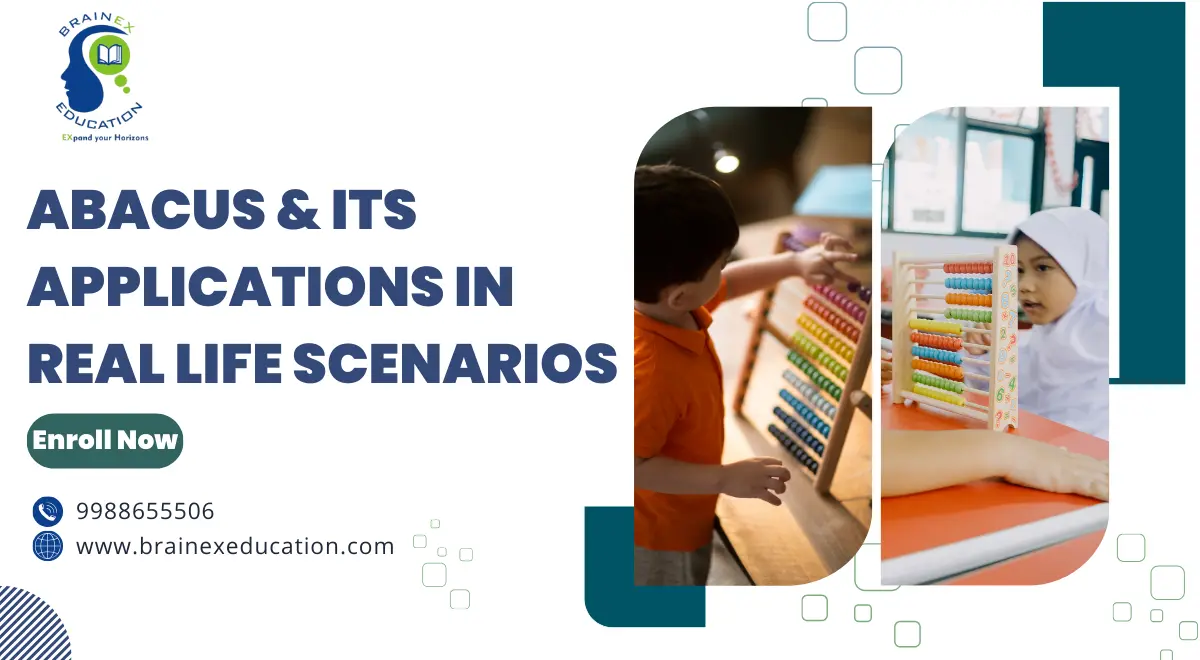Blogs Details

Abacus Learning & Its Applications In Real Life Scenarios
Have you ever wondered how abacus learning may be useful in our daily lives? Abacus is a common term related of mental learning and is taught all over the world. Understanding Abacus and its applications is critical for gaining an advantage in today’s competitive world, where having strong logical and analytical skills is a bit necessary to succeed.
Abacus is more than just a counting device used to perform mathematical calculations; it has numerous other applications that have a direct impact on the overall development of the individual who uses it.
Here are some real life scenarios where abacus learning may help you out:
Maths & Mental Calculation
Abacus is a popular instrument used in maths teaching, especially for young children. It teaches children about basic arithmetic operations, place value principles, and numerical relationships. Abacus training improves mental calculation skills by allowing people to conduct difficult calculations in their minds, without using pen and paper. This mental math aptitude is useful in finance, accounting, and data analysis.
Complex Problem Solving
Since abacus is all about mental learning, it promotes logical thinking, problem-solving, and decision-making abilities. These abilities are highly helpful if you are working in industries, such as engineering, logistics, operations research, and optimization.
Design & Architecture
In architectural design, abacuses have been used to perform basic structural stability calculations. Architects use abacus to calculate loads, pressures, and stresses to verify that structures are structurally sound. They have been used to create proportional systems and ratios, along with determining the harmonic correlations between various construction aspects, such as room measurements, column heights, and window sizes.
Medical Applications
Abacuses have been employed as therapy instruments in several medical settings to enhance mental agility and hand-eye coordination. Patients undergoing rehabilitation or wishing to enhance their cognitive abilities may find abacus helpful. Not only this, individuals with learning problems, ADHD, or cognitive impairments have been treated with abacus training as a cognitive development skill as it improves overall brain function, concentration, memory, and fine motor skills.
Conclusion
Abacus is not a learning program for youngsters. This ancient calculating approach not only helps in academics but also assist in succeeding in different real life scenarios. Its use as a manual computational tool demonstrates its importance in developing mental math skills, cultivating number sense, and improving numerical comprehension.

